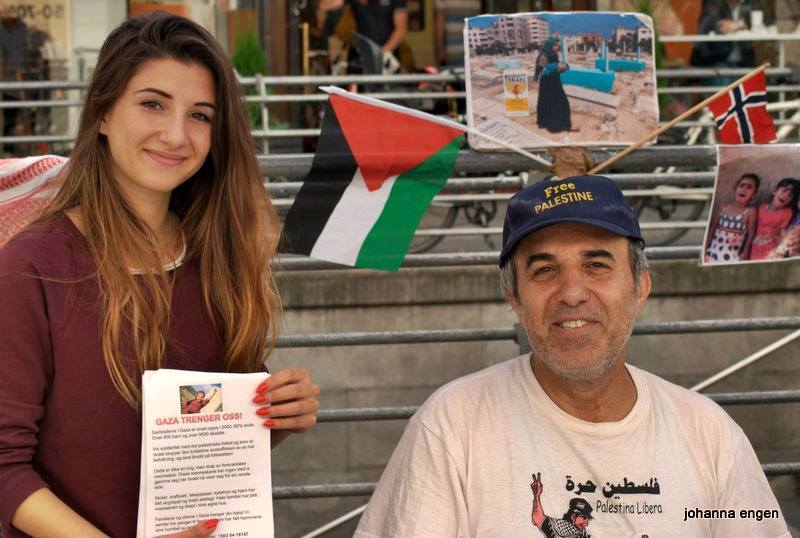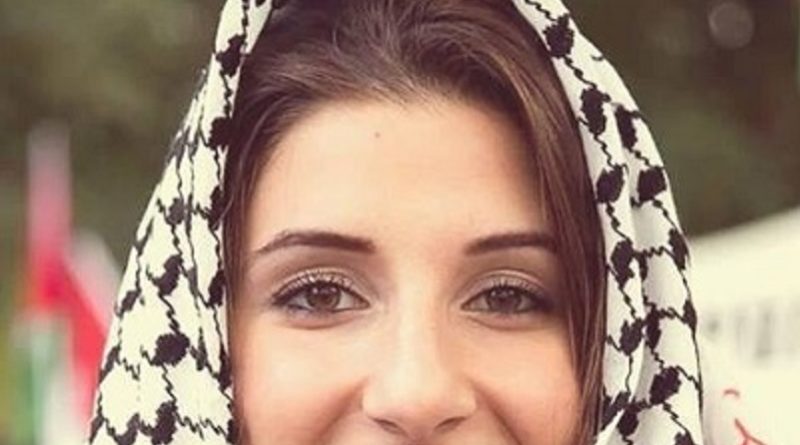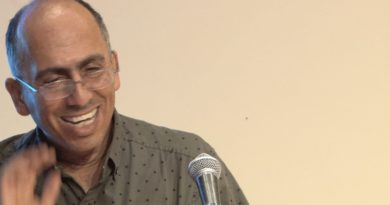I have visited Palestine. I now understand what racism truly is.
Celestyna Nidal Hamad
My grandparents dreamed of once inviting their grandchildren to the house they built from scratch; the house that they were going to fill with love; the house that they were going to make a home. But their house is no longer there. Their house never had a chance to become a home. Their house became God’s acre of lost hope and dead dreams. It became Israel.
I recently visited my homeland Palestine for the first time. I’m a third generation Palestinian refugee. And I’m Norwegian.
I was born into a world of freedom and opportunity; a world of safety; a world where human rights and equality are not only valued, but guaranteed to every citizen.
These are privileges that are not granted to everyone. These are privileges that my family and my homeland, Palestine, have been fighting for since before I was born.
Received demeaning questions
Because of my Norwegian passport, I am the only member of my family who can visit Palestine. As I was approaching the border, the excitement inside me bubbled. My entire body was tingling. My body filled with curiosity. How would my homeland greet me?
My three Norwegian friends made it though in less than one hour. I was not as lucky. My process lasted for six hours. Six hours in which I had to answer to demeaning questions; questions that were hateful and disrespectful; questions that made my body tremble with anger.
They asked me about my fathers’ health. And I understood. I understood that they knew about the Israeli bomb attack in 1982 that left my father wounded and without a leg. They asked me if I had ever visited my family. And I understood. I understood that they knew. They knew that my family still lives in a refugee camp in Lebanon.
As I was walking towards the counter, the nervousness hit me. What if I said something that would wake suspicion? Suspicion that I was a threat. They would never believe that my only intent was to visit my family and my homeland. I knew I couldn’t mention Palestine. So we prepared a story. Our story was that we were going to Tel Aviv. And I kept trying to convince myself that this was true. In my head I went through the answers me and my friends had practiced in advance.
The guard laughed at my family
They demanded that I list all the members of my family; mother and father; grandmother and grandfather; uncles and cousins. As the interrogation continued, I was asked detailed and personal questions about my family. On several occasions he laughed sneeringly at me. He glanced at my face looking for a reaction and I knew that I had to laugh along with him. I knew that if I wanted to cross the border, I couldn’t let his mocking get to me.
For the first time in my life, I got the chance to feel racism and discrimination first-hand.
They wanted to know more about my family. They wanted to know where my father was born and what he studied. As I was telling him that my father moved from Poland to Norway he stopped me. He looked at me and scoffed. “Ok, so first he leaves Lebanon to go to Poland in hope for a better life, but that wasn’t enough for him, so he continues on to Norway?” I felt infuriated, but I forced myself to smile. I answered: “Yes, in the end he moved to Norway.”
A wall divides the people
After they finished the questioning, I was told to wait. While I was sitting there, in the dirty waiting room on the border between Jordan and my homeland, I finally understood the true meaning of racism.
After six long hours, when I was able to leave the border control, relief jolted through my body as I took a deep breath of air. The air of what was once called Palestine.
We visited the beautiful costal city Akko, one of the oldest cities in the world.
I saw my families’ village for the first time, a beautiful landscape brimming with thousand-year-old olive trees.
I roamed through the ancient neighborhoods of Bethlehem. Where the aroma of warm bread and freshly brewed Arabic coffee filled the streets.
One thing that baffled me was that Palestinians and Israelis in many areas shared streets, but didn’t share the same rights.
When we visited the refugee camp Aida Camp, which lies next to the separation wall, I saw with my own eyes how the population is divided in two.
The 8 meter high, and soon to be 810 km long wall, separates Palestinians from Israelis; but it also separates Palestinians from each other. Families. Friends. Classmates. It makes everyday-life a struggle. Moving freely around the country becomes a battle, and in many cases, impossible.
Children see more machineguns than flowers
Heartache fills me when I think about all the Palestinians who will never be able to see Akko.
Heartache fills me when I hear the story of the old man in Hebron who can’t go into his mosque. Not because he is denied access, but because the trauma of experiencing the 1994 Ibrahimi Mosque makes it too painful.
Heartache fills me when I walk through the checkpoint and see the bullet holes in the ground where Hadeel Al-Hashlamoun was shot and killed. The bullet holes that prove that Hadeel was on the ground when she received the fatal shot. The bullet holes that prove that the story from IDF, the story that it was a stabbing attempt, was false.
Heartache fills me when I think about the children that see more machineguns on their way to school than they see flowers, birds and trees.
Palestine to me…
After seeing Palestine, I realize that it’s my duty to tell the story about the country that was.
Palestine to me is the place where my grandfather built his house from scratch.
Palestine to me is the place where olive trees grew in my grandmothers’ garden.
Palestine to me is the place where my grandparents got married and promised to stay together for the rest of their lives.
Palestine to me is the place where my grandparents’ dog guarded them and tried to make sure no one would harm them.
Palestine to me is the place where butterflies drifted from lemon trees to fig trees.
Palestine to me is my grandparents’ home; the home that was stolen from them in 1948.
Palestine to me is what the rest of the world calls Israel.
Palestine became Israel
What was waiting for my grandparents was something their dog could not protect them from. What was waiting for my grandparents was something my grandfather couldn’t protect my grandmother from.
What was waiting for my grandparents was the reason my father was born in a refugee camp in Lebanon along with thousands of other grandparents, mothers, fathers and children.
What was waiting is something no one protects the Palestinians from. Not even today. What should have been my grandparents beginning to a long life together, was something they were forced to leave behind.
Had my grandmother turned around one last time, she would have seen burning olive trees, rape, broken homes and lost children.
What should have been the home they were going to invite their grandchildren to, became a graveyard. It became Israel. We constantly hear about Israels’ right to protect themselves. Who is going to protect Palestine?
Many were shot while I was there
These are the children and teenagers who were shot with no trial or justice during the two weeks I was there.
Abed Al-Rahman Shadi Obeidalla (13)
Huthayfa Othman Suleiman (18)
Fadi Samir Mustafa Alloun (19)
Hadeel Sallah Al-Hashlamoun (18)
Teenagers? Children? It doesn’t matter. They all received more than five shots from Israeli soldiers. It really makes me wonder: does one really shoot someone five times in self-defense?
Their lives have little value
Its scary to think that had I been shot in Palestine, I would have received international attention because I’m Norwegian, and at the same time, young Palestinians just like me die weekly without the media paying any attention.
Life has little worth in Israels’ backyard.
While I’m sitting on the bus on my way home, I can’t stop thinking about my grandparents who still live in refugee camp in Lebanon.
I glance down at my tattoo of the key that hangs over the entrance to Aida Camp. The key that to most people is merely an object, but that to me, and all Palestinians represents the right to return.
I am Norwegian, I am Palestinian, I am Celestyna Hamad and I am a witness to Palestine 2015.
* The article in Norwegian was posted in Aftenposten 28.10.2015(21:50) and was shared at least 7000 times on Facebook.





